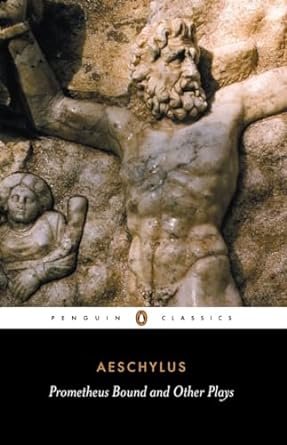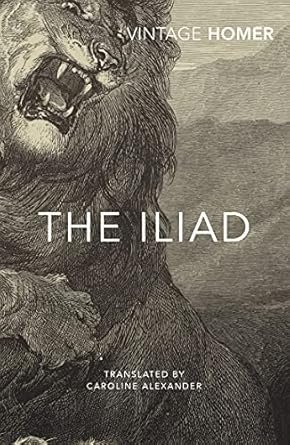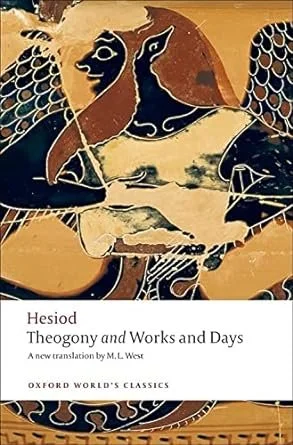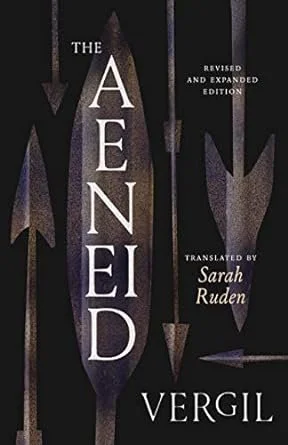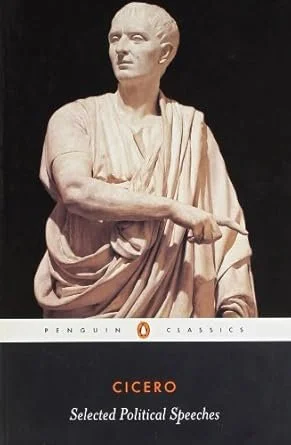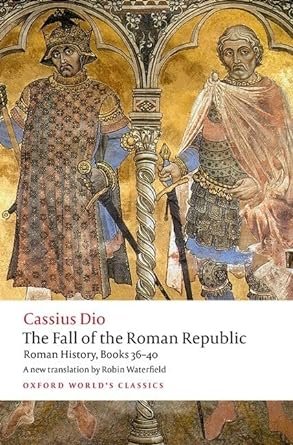
Reading
Test
About these Texts
It would not be at all possible to present a short, accessible list of texts in each of the categories because, frankly, there are hundreds of them.
The numerical problem is compounded by categorisation. The lists ignore some subgenres of poetry, for example, and entire genres that don't quite fit.
You should not consider these recommendations definitive in any way
Instead, we offer a curated core of ancient texts. We consider them 'essential' for anyone wanting to study the ancient world beyond school. On the desktop site, hover your mouse over the text for more information, on mobile, the information is under the picture.
The goal is to guide those seeking to expand their classical knowledge. It may also help prepare them for a deeper dive into ancient literature.
There are many other avenues to explore in this regard, but these are the primary texts we regard as necessary to get your bearings in this landscape.
If you’re looking for a more advanced reading list, Durham University provides this one, while Princeton has this compendious one.
For secondary texts, we have a few recommendations on our Growing Your Enthusiasm page, while our Downloads page is groaning at the seams with free, downloadable texts in English, Latin and Classical Greek.
test
Greek Theatre
Probably the most famous Greek drama written, Oedipus Rex is at centre a devilishly clever whodunnit.
A tragedy about the distinction between the rule of law, and the laws of tradition, Antigone is required reading.
Lysistrata is a comedy with a serious point to make about government. How can the women of Greece end a war? By refusing to sleep with their husbands until they stop.
The Frogs is a comic play about the god, Dionysus making a necessary trip into the underworld to bring back the playwright Euripides.
Arguably Aeschylus’s most influential play, Prometheus Bound dramatises the story of the god punished for giving fire to humanity.
A tale of betrayal and revenge which tends to divide sympathies. Medea is extraordinary in its modern-day resonance.
A bit of a cheat here because The Oresteia is actually a trilogy. A guided tour through the difference between revenge and justice.
After The Persians’ defeat at Salamis, there was a reckoning in Susa. Brilliant drama/ ghost story.
A lot of what we know about the worship of Dionysus comes from The Bacchae. The god doesn’t like it when he is prohibited…
Is the murder of King Agamemnon justified? Elektra believes not.
test
Greek Poetry
The Iliad tells the story of the darkest episode in the Trojan War. At its centre is Achilles, the greatest warrior-champion of the Greeks, who refuses to fight after being humiliated by his leader Agamemnon.
The Odyssey is the story of Odysseus who must overcome monsters and gods on his return to Ithaka following the Trojan War.
The Collected works of Sappho consist of a lamentably small and fragmented body of lyric poetry - among them poems of invocation, desire, spite, celebration, resignation and remembrance - that nevertheless enables us to hear the living voice of the poet Plato called the tenth Muse.
Hesiod’s Theogony contains a systematic genealogy of the gods from the beginning of the world and an account of the struggles of the Titans. In contrast, Works and Days is a compendium of moral and practical advice on husbandry, and throws unique and fascinating light on archaic Greek society.
Apollonius’s Argonautica is the only full surviving account of Jason's legendary quest for the Golden Fleece.
test
Greek Philosophy
In the course of a lively drinking party, a group of Athenian intellectuals exchange views on eros, or desire.
The Phaedo by Plato is acknowledged to be one of Plato's greatest masterpieces, showing him both as a philosopher and as a dramatist at the height of his powers.
Fragments by Heraclitus have for thousands of years tantalized our greatest thinkers, from Montaigne to Nietzsche, Heidegger to Jung.
In The Art of Living by Epictetus readers learn to meet the challenges of everyday life successfully and to face life's inevitable losses and disappointments with grace.
The Nicomachaean Ethics by Aristotle
Aristotle's famous series of lectures on ethical topics ranges over fundamental questions about good and bad character; pleasure and self-control; moral wisdom and the foundations of right and wrong; friendship and love in all their forms.
test
Greek History
The History of the Peloponnesian War by Thucydides
'I shall be content if [my history] is judged useful by those who will want to have a clear understanding of what happened … It was composed as a permanent legacy, not a showpiece for a single hearing.'
The Histories by Herodotos is a seminal account of the rise of the Persian Empire and its dramatic war with the Greek city states. It set a standard for narrative nonfiction that continues to this day.
A History of My Times Xenophon recounts nearly fifty turbulent years of warfare in Greece between 411 and 362 BC, continuing the story of the Peloponnesian War at the point where Thucydides finished his history.
The Histories by Polybius is a study of imperialism which takes the reader back to Rome's first encounter with Carthage in 264 and forward to her destruction of that renowned city in 146.
The Historical Library of Diodorus Siculus recounts events including the death of Philip of Macedon, the world-changing eastern conquests of Alexander the Great, and the twenty turbulent years following Alexander's death.
test
Roman Theatre
Medea by Seneca is dominated by the superhuman energy of its protagonist: diva, killer, enchantress, force of nature.
Phaedra by Seneca tell the story of Phaedra, the wife of King Theseus of Athens and her consuming lust for her stepson Hippolytus. (It’s in the same edition as Medea, here.)
Bacchides by Plautus revolves around the misunderstandings surrounding two sisters, each called Bacchis, who work in a brothel.
Mercator by Plautus involves a father who falls in love with a slave girl who is, unbeknownst to the father, his son's lover. (Same edition as Bacchides.)
The Eunuch by Terence is a 2nd century comedy featuring a complex plot of rape and reconciliation.
test
Roman Poetry
The Aeneid by Virgil tells of Aeneas, survivor of the sack of Troy, and of his seven-year journey: to Carthage, where he falls tragically in love with Queen Dido; then to the underworld; and finally to Italy, where he founds Rome.
The Metamorphoses by Ovid include the flight of Icarus, the music of Orpheus, Perseus's rescue of Andromeda, and the fall of Troy, all of which speak toward the essence of human experience: of power, of fate and, most fundamentally, of transformation.
The Poems of Catullus contains all of Catullus' extant work and includes his lyrics to the notorious Clodia Metelli - married, seductive and corrupt - charting the course from rapturous delight in a new affair to the torment of love gone sour…
The Poems of Horace constitute a body of Latin poetry equalled only by Virgil's, astonishing us with leaps of sense and rich modulation, masterly metaphor, and exquisite subtlety.
The Satires of Juvenal evokes a fascinating world of sex-workers, fortune-tellers, boozy politicians, slick lawyers, shameless sycophants, ageing flirts and downtrodden teachers.
test
Roman Philosophy & Rhetoric
Written in Greek by the only Roman emperor who was also a philosopher, Meditations by Marcus Aurelius offer a remarkable series of challenging spiritual reflections and exercises developed as the emperor struggled to understand himself.
Selected Political Speeches of Cicero
Amid the corruption and power struggles of the collapse of the Roman Republic, Cicero produced some of the most stirring and eloquent speeches in history.
On the Shortness of Life by Seneca offer powerful insights into stoicism, morality and the importance of reason, and continue to provide profound guidance to many through their eloquence, lucidity and wisdom.
How to Win an Election by Quintus Cicero
In 64 BC when Marcus Cicero, Rome's most famous orator, ran for consul (the highest office in the Republic), his practical brother Quintus decided he needed some no-nonsense advice on running a successful campaign.
Plutarch’s Essays offer personal insights into moral subjects that include the virtue of listening, the danger of flattery and the avoidance of anger, alongside more speculative essays on themes such as God's slowness to punish man.
test
Roman History
Suetonius’s Lives of the Caesars chronicle careers and lives of the men who wielded absolute power over Rome, from Julius Caesar and Augustus to the decline into depravity under Nero.
Tacitus’s Agricola is both a portrait of Julius Agricola - the most famous governor of Roman Britain and Tacitus' well-loved and respected father-in-law - and the first detailed account of Britain that has come down to us.
Livy’s Early History of Rome chronicles nearly 400 years from the founding of Rome to the Gallic invasion in 386 BC. It brings compelling characters to life, and tells familiar tales - including the tragedy of Coriolanus and the story of Romulus and Remus.
Cassius Dio’s Fall of the Republic covers 69-50 BCE, the last twenty years before the Roman Republic collapsed in a long series of civil wars, leading to the monarchy of the emperors.
Appian’s The Civil Wars are a masterly account of a turbulent epoch, they describe the Catiline conspiracy; the rise and fall of the First Triumvirate; the murder of Julius Caesar; the formation of the Second Triumvirate by Antonius, Octavian, and Lepidus; and brutal civil war.






